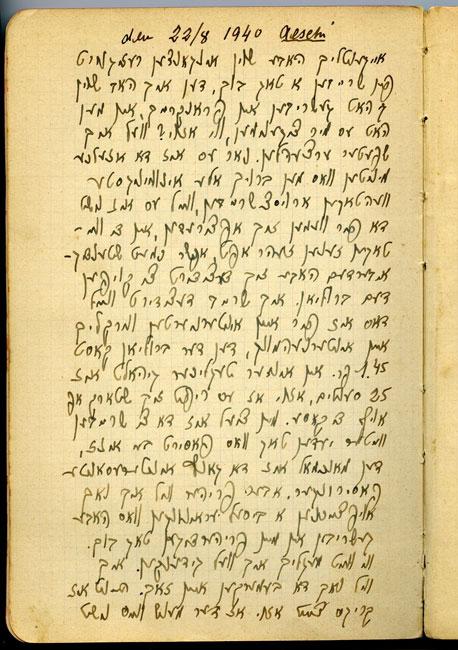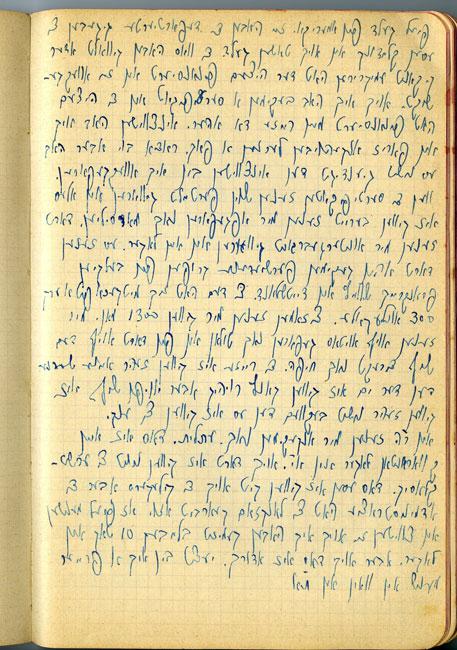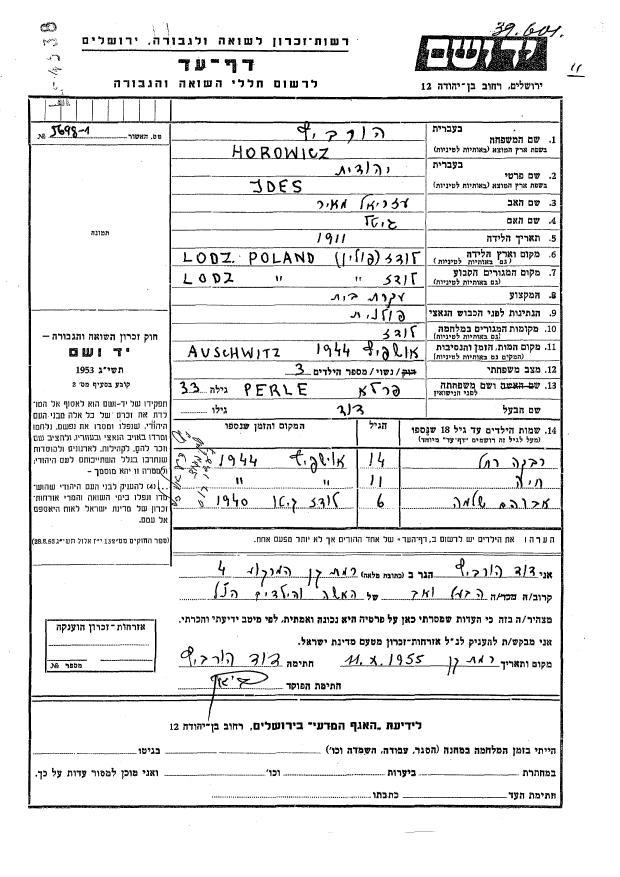





Sunday to Thursday: 09:00-17:00
Fridays and Holiday eves: 09:00-14:00
Yad Vashem is closed on Saturdays and all Jewish Holidays.
Entrance to the Holocaust History Museum is not permitted for children under the age of 10. Babies in strollers or carriers will not be permitted to enter.






"Now I am a free man living in Tel Aviv."
So concludes the journal that David Horowicz began in Antwerp in August 1940 and completed on 3 December 1945.
David Horowicz, a resident of Lodz, Poland, was married to Jdes and they had three children: Rivka Rochel, Chaya and Avraham Shlomo.
In summer 1939 David planned to visit Antwerp with his family but his son fell ill and needed an appendectomy. Jdes and the children remained in Lodz and David Horowicz traveled to Antwerp in order to lay the groundwork for transferring his family there. While he was there, Germany invaded Poland and David's family was trapped in occupied Poland. David joined a unit of General Anders' Army in France with the intention of returning to Poland, to his family, but was instead sent to Switzerland where he was employed as a farm worker.
David kept a personal diary in which he described the difficult days of war. He met Lonny in Zurich, and after the war the two arrived in Eretz Israel. In 1947, when he understood that his family was not going to return, David married Lonny. David and Lonny did not have any children.
David Horowicz's diary was recently donated to Yad Vashem by Marta Lomas, Lonny's niece, in David's name. After the diary had been submitted to Yad Vashem and David Horowicz's story had been documented, it was discovered that some time earlier, Lonny had donated David's Horowicz’s correspondence with his family in Lodz during 1940-1942 to Yad Vashem. These letters, together with the journal, shed vital light on the story of David Horowicz and his family.
"We decided to donate our uncle’s journal to Yad Vashem for many reasons," explained Marta’s husband Yaakov. "He was very connected to the institution, and we felt we were continuing his wishes to keep this relationship sound. But the most important reason was that we believed that such a beautifully and clearly-written account belonged not just to his family, but to the Jewish people as a whole. At Yad Vashem, it can be viewed by researchers, historians and the public at large, rather than sit in a closed closet in our home, where in a few more generations its significance would be lost."

Thank you for registering to receive information from Yad Vashem.
You will receive periodic updates regarding recent events, publications and new initiatives.

"The work of Yad Vashem is critical and necessary to remind the world of the consequences of hate"
Paul Daly
#GivingTuesday
Donate to Educate Against Hate


Worldwide antisemitism is on the rise.
At Yad Vashem, we strive to make the world a better place by combating antisemitism through teacher training, international lectures and workshops and online courses.
We need you to partner with us in this vital mission to #EducateAgainstHate
The good news:
The Yad Vashem website had recently undergone a major upgrade!
The less good news:
The page you are looking for has apparently been moved.
We are therefore redirecting you to what we hope will be a useful landing page.
For any questions/clarifications/problems, please contact: webmaster@yadvashem.org.il
Press the X button to continue



